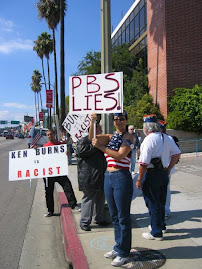
Image: Rodolfo Acuña©2008, Harry Gamboa Jr.
On the evening of March 11, R.F. Acuña lectured on his new book Corridors of Migration: The Odyssey of Mexican Laborers, 1600-1933. A timely monograph in relation to the current debate on immigration from Mexico, the argument of Corridors attests that since the 17th century Mexicans existed within a tierra natal (homeland), if you will, in the current US Southwest. Indeed, migrant Mexican families from Chihuahua and Sonora in northern Mexico hop scotched from one industrial region to another, and in the process recreated tierra natals in places such as Los Angeles and Arvin in the San Joaquin Valley and monikered their adopted communities Chihuahuitas after the state from which they came. In short, R.F. Acuña historically demonstrated that Mexicans of the past and present are anything but uninvited, immigrant aliens. In fact, their current presence is part of long tradition of labor recruitment and migration in what is today the United States.
As part of his W.P. Whitsett lecture at CSU Northridge, R.F. Acuña began his talk by crediting Carey McWilliams—the prodigious and prescient author of many books, one being North From Mexico: The Spanish-Speaking People of the United States—and his longtime CSU Northridge colleague historian Leonard Pitt—author of the California history classic Decline of the California’s: A Social History of the Spanish-Speaking Californians, 1846-1890—for modeling the intrinsic force of cogent writing. And during an academic craze for cultural studies and all that is post-modern, R.F. Acuña emphasized the historian’s importance in creating new narratives on the foundation of extant primary evidence. In this regard, he stated that he never read an endnote he didn’t love.
In the process of his story telling, R.F. Acuña integrated descriptions of his methodology, humor (that expressed an affinity for British historians with their catchy abbreviated names such as E.P. Thompson, E.J. Hobsbawm, and A.J.P. Taylor), and answering questions from a captivated audience of 100.
fpb
As part of his W.P. Whitsett lecture at CSU Northridge, R.F. Acuña began his talk by crediting Carey McWilliams—the prodigious and prescient author of many books, one being North From Mexico: The Spanish-Speaking People of the United States—and his longtime CSU Northridge colleague historian Leonard Pitt—author of the California history classic Decline of the California’s: A Social History of the Spanish-Speaking Californians, 1846-1890—for modeling the intrinsic force of cogent writing. And during an academic craze for cultural studies and all that is post-modern, R.F. Acuña emphasized the historian’s importance in creating new narratives on the foundation of extant primary evidence. In this regard, he stated that he never read an endnote he didn’t love.
In the process of his story telling, R.F. Acuña integrated descriptions of his methodology, humor (that expressed an affinity for British historians with their catchy abbreviated names such as E.P. Thompson, E.J. Hobsbawm, and A.J.P. Taylor), and answering questions from a captivated audience of 100.
fpb


3 comments:
I see that the Chicana/o History is important to the U.S. But why should the (Chicana/o) History and Studies matter to ordinary people?
I'm glad to hear Rudy is still turning people on to Carey McWilliams. When I was selling books (my first job out of college), Rudy's Occupied America was very popular in my territories (New Mexico/West Texas and Los Angeles). So I feel like I owe him on at least two counts.
Post a Comment